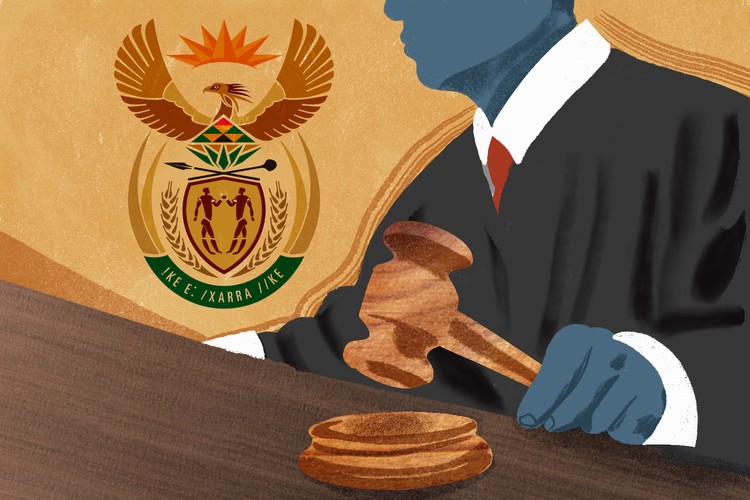
1 November 2024
A KwaZulu-Natal magistrate has recused himself after Interpol insisted on interviewing him in connection with the extradition case he was hearing. Illustration: Lisa Nelson
A KwaZulu-Natal magistrate, hearing an extradition application, has recused himself mid-hearing after Interpol insisted that it wanted to interview him in connection with the case.
Magistrate Ian Blose’s recusal came after the NPA prosecutor in the matter, advocate Melani Naicker, argued that while there was no suggestion of impropriety, he had now become involved in the investigation as a potential witness.
Another magistrate will have to be appointed. The case must start afresh and Indian national Rahul Jaiswal, arrested more than a year ago, will languish in Westville Prison.
US authorities want Jaiswal to stand trial on charges of conspiracy to import and deal in pharmaceuticals.
The timing of the demand for an “interview” has been questioned by Jaiswal’s legal team – advocate Anton Katz briefed by local criminal law attorney Wesley Rogers.
They believe the timing is no coincidence.
On the Friday, before the matter was to proceed (Monday 28 October), they filed heads of argument which they believe would have put paid to the attempted extradition of their client on the basis that the documents from the US authorities had not been properly authenticated.
Naicker indicated in court that the adjournment was necessary because Interpol/SAPS investigators wanted to interview the magistrate “regarding an issue pertaining to Jaiswal’s detention”, and that an email had been sent directly to Magistrate Blose regarding this.
Rogers said, “As officers of the court we are of the view that the state should have advised their investigation team that making direct and unsolicited contact with the magistrate seized with the partly-heard matter was improper and full transparency would have been expected.
“Unless under a High Court order, a magistrate is not ordinarily compellable to be interviewed by those tasked with investigating a matter before him or her, and this conduct has potentially undermined the independence of the judiciary and had the effect of orchestrating an undue delay.”
But Magistrate Blose granted the adjournment, until Wednesday (30 October), indicating that he could not obstruct an investigation, although he had not yet received the email.
When the matter was called on Wednesday, it stood down until after lunch. The interview with the investigators took place that morning and the matter was recalled. Magistrate Blose placed on record that he had permission to undergo the interview from his superiors in the judiciary.
While Rogers placed on record that he was “largely in the dark”, he believed the investigation related to allegations that Jaiswal had been taken out of prison and sent home for a weekend. Jaiswal would deny this, he said.
It was already on record that after he had previously appeared in court, the J7 form that authorises the Department of Correctional Services to detain a prisoner and which is signed by the magistrate, had been left behind at court, preventing his detention at Westville Prison. He was detained at police cells for the weekend until the administrative issue was sorted out on the following Monday.
Rogers questioned why it was necessary to interview Magistrate Blose when the J7 and other court documents “are court records and speak for themselves”.
“It makes the inference loom large that this was orchestrated to conflict you,” he said in argument.
Magistrate Blose confirmed that he was now a potential witness in that matter and recused himself. The matter will come back to court on 7 November.
Rogers has requested a copy of the email sent to Magistrate Blose by Interpol and all documents and correspondence relating to the matter.
Naicker has already indicated to the court that these documents are “privileged” and Interpol would not consent to their release.
Rogers said should this not be provided, he would make an application in the High Court.
In court, Naicker denied any wrongdoing. She said Rogers was “casting aspersions” on the state with no evidence.
She said heads of argument were exchanged often weeks or months in advance and each party knew what the other would raise.
“We don’t work in a vacuum,” she said in her submissions. And, she said, she was entitled to supplement her case after consultation with her client, the US government.
Approached for comment, Provincial Director of Public Prosecutions Elaine Harrison said, “The allegations regarding interference and an orchestration to conflict the magistrate was denied by the state and dealt with in court proceedings. The matter is sub judice and the state will not comment further on that issue.”
GroundUp has approached Interpol for comment but it had not been received at the time of publication.